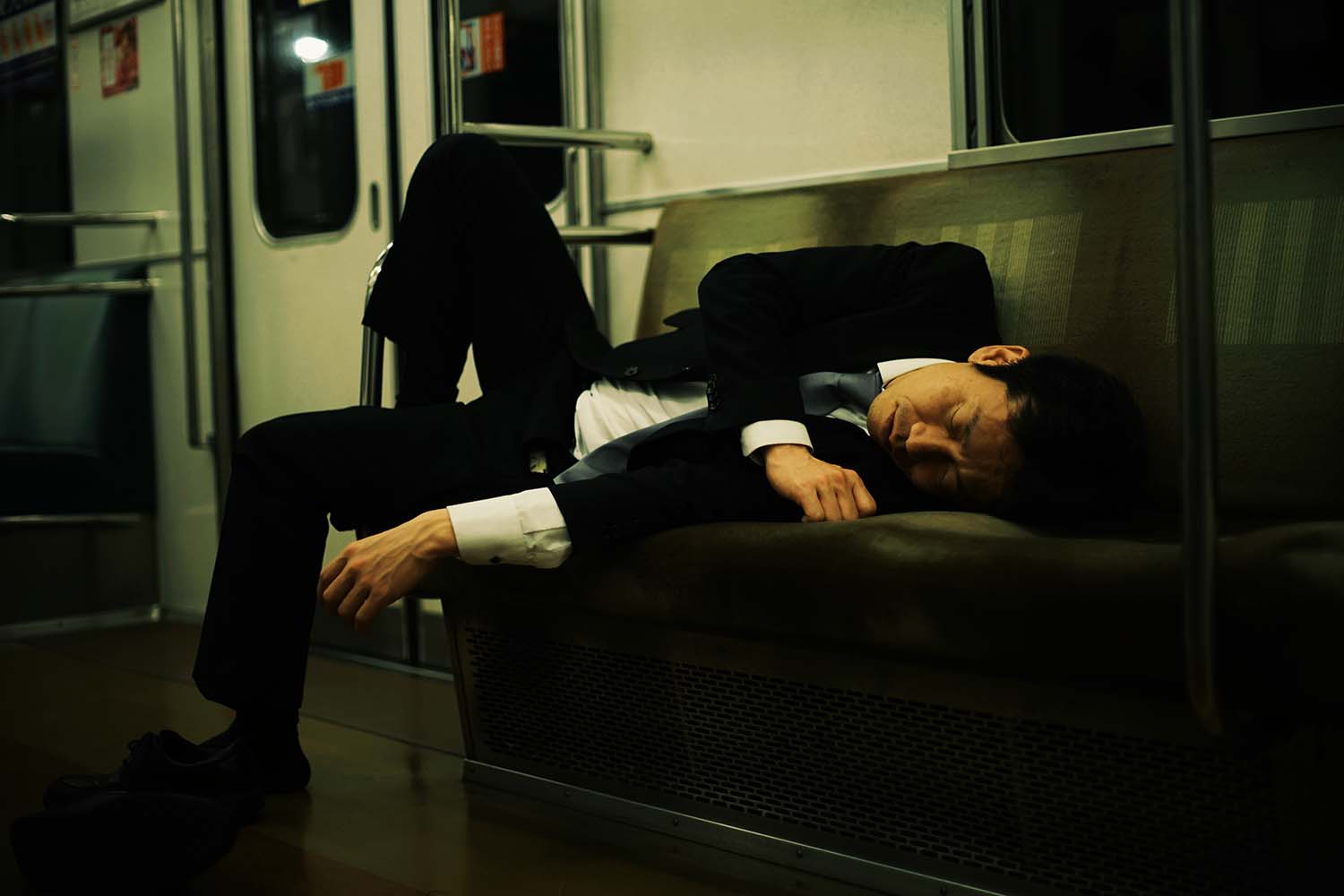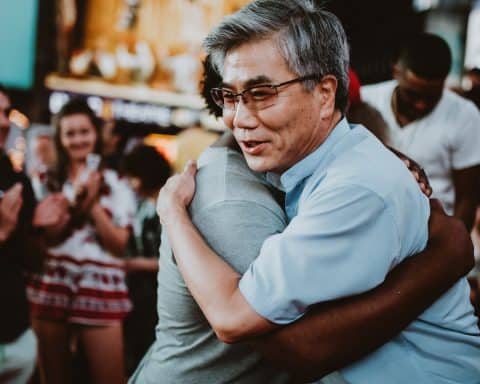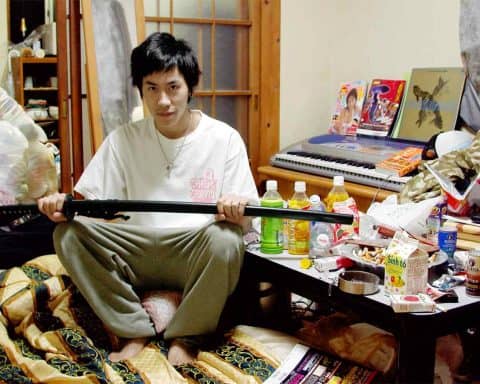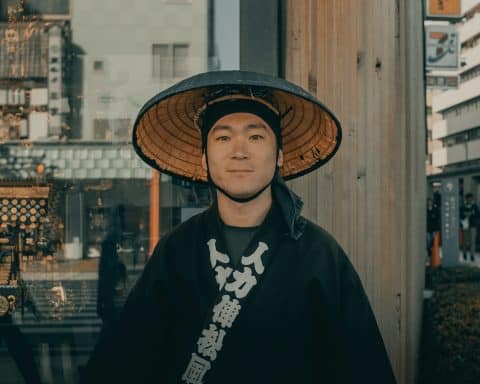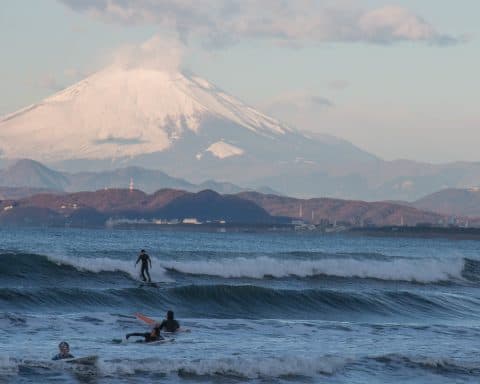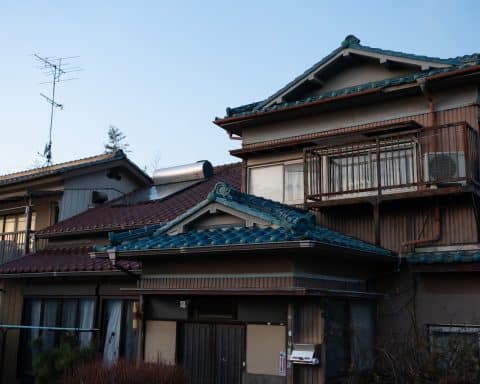I’m pretty sure I can count on one hand the number of times I’ve fallen asleep on public transport. It’s not typically the “done thing” in England, but in Japan, the story is a little different.
Japanese people sleep on trains due to their high-pressure, high-workload jobs. They often get little time to themselves and are expected to devote much of their life to the betterment of the company.
This isn’t just something that affects big corporations, it’s a deep-rooted cultural theme that runs through many of the companies in Japan. Let’s learn about it.
Why Do Japanese People Sleep On Trains?
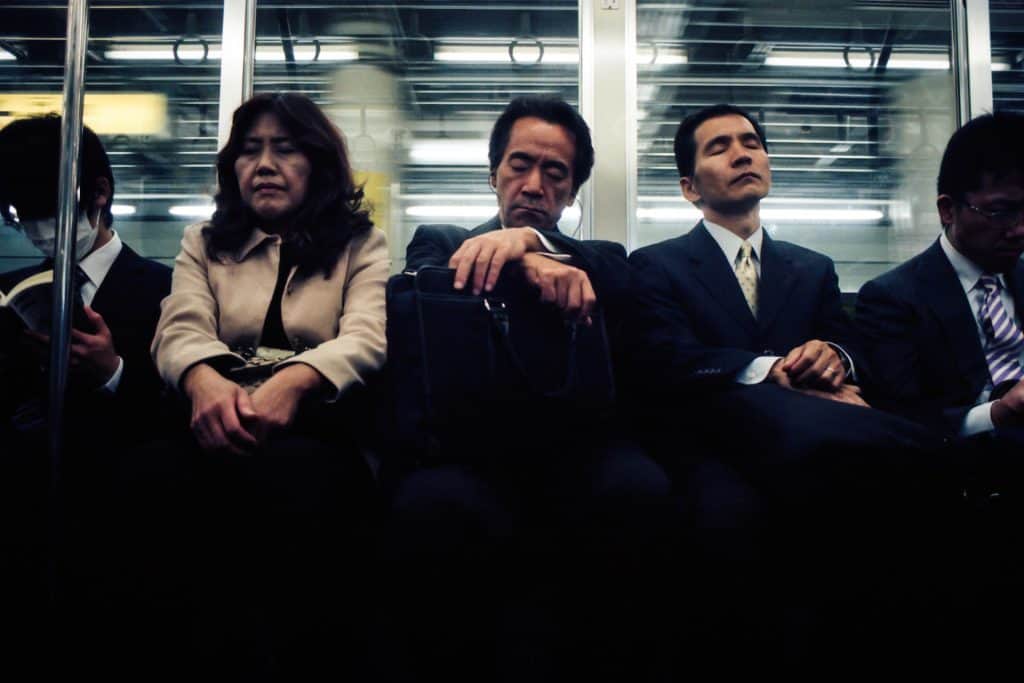
The main reason you’ll find a lot of people in Japan sleeping on trains, as I’ve briefly talked about above, is often that they give everything to their job. Because of that, the train ride home is pretty much the only place a lot of people have to relax.
A typical day for someone working for a company may see them get up at 6 or 7 (depending on their location), get into work at least half an hour early to show willingness, possibly more, and leave around 8, 9, or even later.
Of course, this doesn’t happen to everyone in the country, but it’s far more prevalent than in most other countries around the world.
Whilst someones contracted hours might finish at 5 or 5:30, for a lot of people that doesn’t signify the end of the working day.
Back on the train late in the evening, it’s likely that’s the first time since waking up that they’ve had a moment to themselves. If I worked under that kind of pressure and expectation, I think I’d fall asleep too.
Why do Japanese people work such long hours?
Unpacking this question is something that could easily fill an entire post (and one that I intend to write!), so rather than going over everything in detail, we’ll just talk about the main point.
So, why do Japanese people work longer hours?
The main reason comes down to pressure. That’s pressure from society’s expectation as well as their employers. Staying at work later and arriving early is supposed to show your devotion to the company by going above and beyond. But as time went on, it quickly became the norm.
That meant you were the odd one out if you didn’t increase your working hours for free.
The office atmosphere
One of the biggest tactics Japanese companies use to get employees to keep working is guilt. You’re not just letting down the company, but also all of your coworkers. That’s not just if you decide to leave at your contracted hours, but also the situation if you were to ring in sick.
I’ve read countless stories about people teaching in Japan that have been highly pressured by their boss to come in even when they’re sick, or else you’ll be “letting down the children” and “causing inconvenience to the supply teacher”.
What is Inemuri?
I’ve already discussed the Japanese concept of “Inemuri”, and Japan’s incredible train system here, but let’s delve a little deeper and find out the root cause of people in Japan falling asleep on trains.
One of the most famous Japanese phenomena of sleeping in public, which you’ve no doubt seen in pictures or videos actually has a name. That name is Inemuri.
Technically, Inemuri means “Sleeping on the job”, but it is more often and accurately referred to as “Sleeping while present”. Like I’ve said before, the fact is, a lot of people don’t have time for sleep. Or at least feel like they don’t, or shouldn’t. After all, if you’ve got time to sleep, you’ve got time to work!
Is inemuri frowned upon?
The practice of Inemuri is completely culturally acceptable. So much so, that it’s sometimes praised if you’ve fallen asleep at work, as that shows an incredible amount of willingness and sacrifice that you have made for your company.
If, however, you aren’t able to fall asleep at work, when’s the next time you’ll be able to switch off? Normally on your commute home. And as we already know, Japan has one hell of a train system, so the majority of workers, especially in the city, will choose this as their mode of transport.
But it’s not just trains where you’ll catch Japanese people falling asleep. Benches, up against a wall, the floor, they’re all places you’ll likely find people dosing off if you ever travel to Japan.
I took the featured photo from this article a few years ago coming back from Shibuya. It’s clear people don’t worry about sprawling out across the seats on trains and I think that’s a direct result of how socially acceptable it is.
The science behind why we fall asleep on trains
There are, of course, more than just cultural reasons why Japanese people, or anyone for that matter fall asleep on trains. I’m almost certain that at one point or another in your life you’ve at least felt sleepy when traveling by train, car, bus, or plane.
Is there actually a reason for that, or is it just a tiring experience?
The swaying, the monotonous hum of the engine, and the warm and confined space are all sleep-inducing. Babies have been rocked to sleep for thousands of years, so it’s not a stretch to imagine a train having a similar effect.
We also need to consider the possibility that many Japanese people fall asleep on trains because of stress. If the only moments you have to yourself throughout the working day are your commute to and from work, it’s bound to encourage an overactive mind if you aren’t asleep.
That’s the only true moment people have to relax and mentally debrief themselves. I know that when I feel anxious or overwhelmed that feeling of tiredness is only just around the corner.
Final Thoughts
When you understand the stress and pressure a lot of people face at their jobs in Japan, it’s not surprising that they fall asleep on trains. That’s not to say all people experience this kind of pressure, but you’d be hard-pressed to not find someone asleep if you take a ride on the Tokyo Metro.
I often wonder if this kind of thing could ever happen in a western country, but I honestly don’t believe it would ever be socially acceptable.



